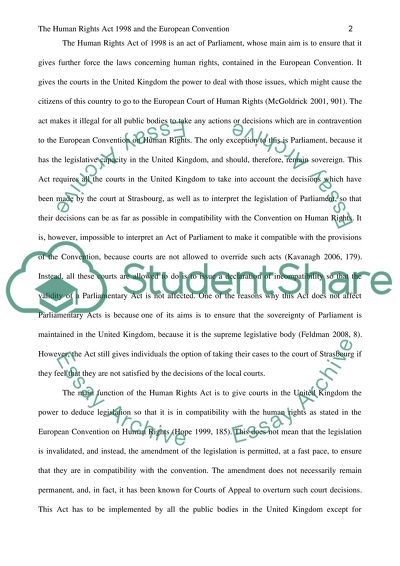Cite this document
(“The Human Rights Act 1998 and the European Convention Essay”, n.d.)
Retrieved from https://studentshare.org/law/1459992-the-human-rights-act-1998-and-the-european-convention
Retrieved from https://studentshare.org/law/1459992-the-human-rights-act-1998-and-the-european-convention
(The Human Rights Act 1998 and the European Convention Essay)
https://studentshare.org/law/1459992-the-human-rights-act-1998-and-the-european-convention.
https://studentshare.org/law/1459992-the-human-rights-act-1998-and-the-european-convention.
“The Human Rights Act 1998 and the European Convention Essay”, n.d. https://studentshare.org/law/1459992-the-human-rights-act-1998-and-the-european-convention.


